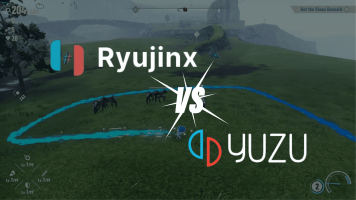Naturally, when Civilization 7 was announced, we were of course keen for what is likely to be another great game in a great series, but after being invited to a presentation from the developers at Firaxi and a hands on session at Gamescom, it has shot itself way up our most anticipated list.
Civilization 7 has flipped the formula on its head in many ways. First off, you can pick the leader of your civilization and that's it. Leaders are no longer tied to a single civilization, allowing you to jump in and play as Augustus of Rome leading the Ancient Egyptians, for example. Naturally, leaders will have some amount of synergy with their actual civilization – but this change adds a new layer of depth and strategy before you even load into the game. Plus, leaders are no longer just political figures, with leaders from art, science, and philosophy (the developers specifically named Benjamin Franklin) fleshing out the roster. While this on its own isn't exactly mind-blowing, the change leads to some bigger things down the road.
The eras of previous games (bronze age, modern era, etc.) have been ditched in favor of three distinct Ages: the Age of Antiquity, the Age of Exploration, and the Modern Age. While the eras signified your progress in the game, the Ages represent a huge overhaul to the gameplay loop. At the end of an age, you'll be faced with crises such as war and revolution (as well as being given crisis debuffs to add to your civilization, like reduced gold each turn). But once you pass through to the next age, you rebuild anew, which leads to another major overhaul.
As with 90 per cent of strategy games, Civilization can be a bit daunting to new players due to the huge number of systems. While things have improved in this regard as the series has continued, Civ 7 is making some smart changes to streamline the process for those who need it even more. One of the first things you'll be faced with in a turn is your advisors asking if you'd like to go for a military, economic, culture, or scientific victory (from the looks of things, faith victories have been removed thankfully). From there, your advisors will offer up challenges and ideas to push you towards those — for example, your first goal for culture is to create a world wonder. Considering this is the first Civilization game to launch on consoles and PC simultaneously, the influx of newcomers will need to be taken care of. However, these are easily ignored if you're a grizzled vet who wants to go all out on the difficulty.
After the presentation from the developers, we were given a hands-on session with the game to try out the Age of Antiquity. Now, as anyone who has played Civilization knows, a full game lasts roughly three months (maybe a bit closer to over three hours if you're better than we are at it), so you can imagine how much we got out of playing the game for about 20 minutes. We did get the chance to experience some of those early-game additions we talked about above, but giving you the full verdict would be nigh impossible from the short snippet.
During our presentation for Civilization 7, the development team was saying words we loved to hear. And while talking a good game is only part of the battle, our short hands on did show promise that the team will manage to pull off these lofty reworks. Like we said, you're always in for a good time with a Civilization game, but from what we've seen of the seventh entry so far, it could be one of the best the series has to offer.
Civilization 7 launches for PS5, PS4 on 11th February 2025. Are you excited to experience its big changes for yourself? Pick your leader in the comments below.





